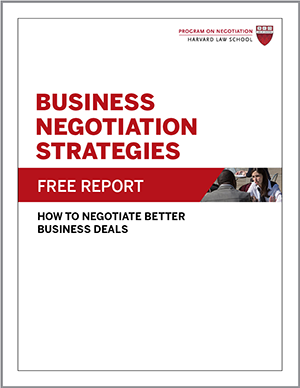
When preparing for your next business negotiations, you may want to strategize not only about what you’ll put on the bargaining table, but also how much food you’ll put in your belly beforehand.
That’s the message of new research that Cornell University professor Emily Zitek and Dartmouth College professor Alexander Jordan presented at the annual meetings of the Academy of Management in August. In two experiments, the researchers found that undergraduate students felt a greater sense of entitlement when they were hungry than when they were not. The researchers define entitlement as the sense that one is more deserving of positive outcomes than other people are.
In the first experiment, the researchers cornered Cornell students as they were either entering or leaving a university dining hall. Those who hadn’t yet had lunch felt a greater sense of entitlement than those who had just eaten, as measured by their responses to questions such as, “I honestly feel I’m just more deserving than others” and “People like me deserve an extra break now and then.”
In the second experiment, some undergrad participants were shown to a lab room that smelled like pizza (because a frozen pizza was being cooked in a toaster oven in the room), while others were shown to a room that did not smell like pizza. Those who were exposed to the smell of pizza reported being hungrier than those who were not, and the pizza smellers also displayed a greater sense of entitlement, as measured on a personality test.
A sense of entitlement can have numerous consequences, most of them negative. Entitled individuals tend to behave selfishly and have difficulty taking the perspective of others, past research has found. They also are more likely than others to be dishonest and to have trouble getting along with others.
When people are hungry, they tend to be focused on their own immediate needs. Consequently, they may have trouble focusing on anything else or especially the needs of others, a state that leads to a sense of psychological entitlement, according to Zitek and Jordan.
For business negotiations, the study’s results suggest that as hungry as we might be to make a deal, literally feeling hungry during an important negotiation could lead us to behave unethically and selfishly. Though a hungry negotiator might claim more value than less hungry counterparts in a negotiation in the short term, an empty belly could lead us to overlook opportunities to work with other parties to identify potential tradeoffs and new sources of value. In addition, any “hunger gains” achieved during a negotiation could backfire in the long term if our sense of entitlement leads others to view us as dishonest and uncooperative.
Do you plan your meals around your business negotiations? Leave us a comment.





This study is spot on within the context of mediating litigated cases as well. As a mediator, my role is to help guide the parties towards settlement. Hunger can be an impediment to that goal, which is why I always make sure everyone is well fed.
This makes me think I might want to feed the person I’m negotiating with prior to getting down to business. I don’t want them feeling unreasonably entitled either.